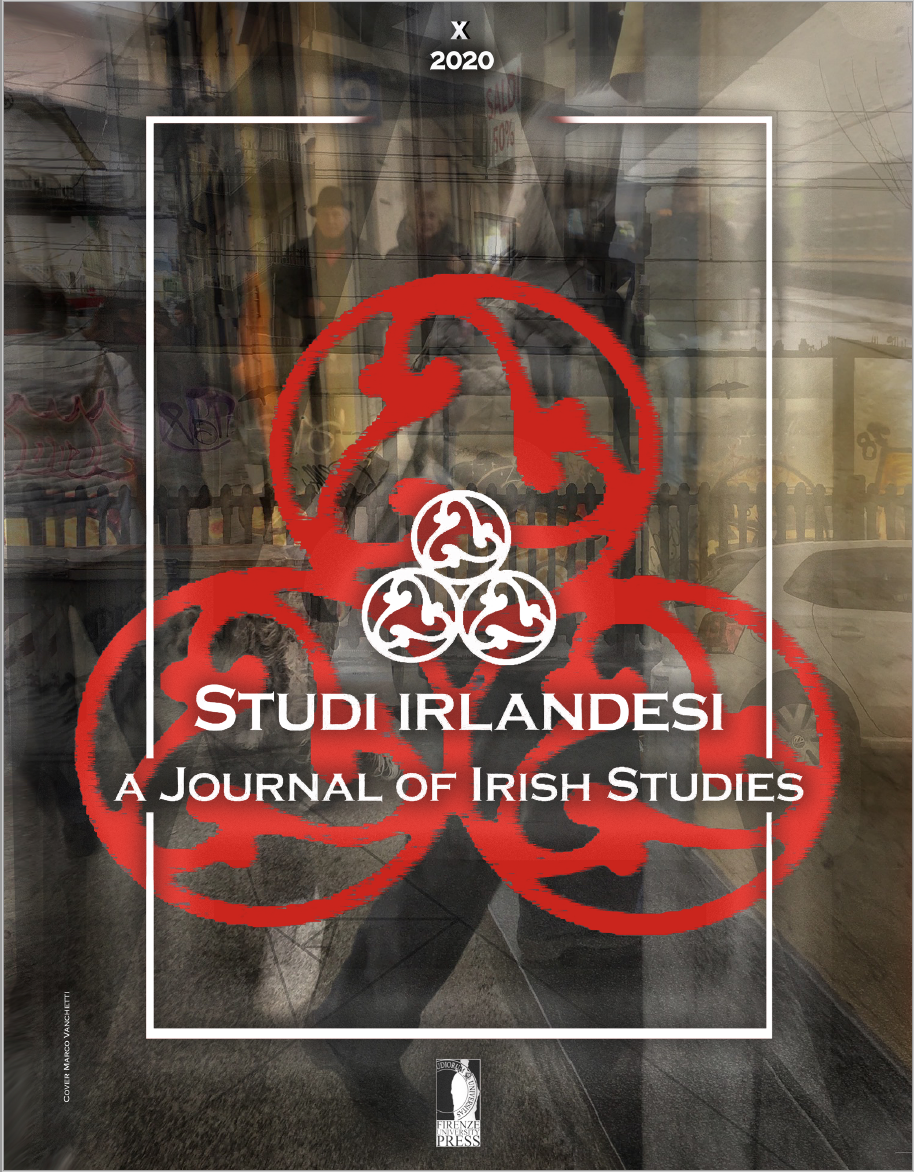“What secret torture?”: Normativity, “Homoeros” and the Will to Escape in Yeats’s “The Land of Heart’s Desire” and Edward Martyn’s “The Heather Field”
Pubblicato 2020-07-01
Parole chiave
- failure,
- homoeros,
- normativity,
- supernatural,
- Yeats
Come citare
Abstract
This paper offers a dramaturgical and comparative analysis of W.B. Yeats’s The Land of Heart’s Desire (1889) and Edward Martyn’s The Heather Field (1899) in light of their representation of the tension between the queer and the normative. I focus on characters who feel different and the unease of the normative discourse which insults them and perceives their existence as a threat for traditional family values and as a cause of the family’s unhappiness. This tension between the queer and the normative is also what creates spaces that allow new ways to think about gender and sexuality in these plays. I also argue that playwrights like Yeats and Martyn associated with the Revival and the Irish Literary Theatre often used the mainstream and widely accepted cultural framework of the supernatural to express same-sex intimacies in code and to offer a discourse of legitimation for non-normative subjectivities. Both Martyn’s and Yeats’s plays tell about the pressure normalcy imposes on stigmatised individuals and the resulting desire to escape to find alternative ways of love, intimacy and happiness. I will refer to the works of contemporary queer theorists including Jack Halberstam, Heather Love, Eve Kosofsky Sedgwick, Didier Eribon, José Esteban Muñoz and Sara Ahmed to demonstrate that these plays can offer “a rich archive of queer historical structures of feeling” (Love 2007, 24).


